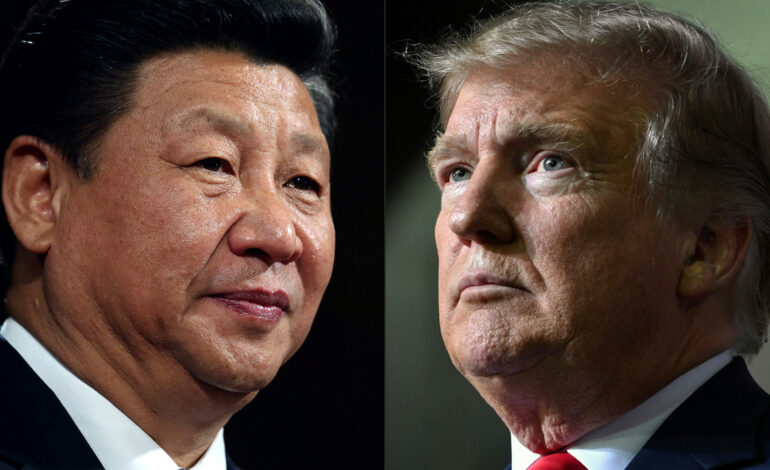Xi Jinping Delays Summit with Trump Amid Trade Negotiations

The prospect of a summit between Chinese President Xi Jinping and U.S. President Donald Trump hangs in the balance as the White House remains optimistic about securing a date. Analysts suggest that President Xi is likely waiting for tangible concessions from the United States before committing to the high-profile meeting.
Negotiations between the two nations have intensified recently, particularly following Trump’s implementation of new tariffs in April, which escalated the ongoing trade conflict between the world’s two largest economies. In retaliation, China has introduced its own tariffs and export duties, complicating the prospects for a smooth summit.
Upcoming Talks in Sweden
While President Trump has stated that “the confines of a deal” are established prior to a third round of discussions scheduled for Sweden next week, several critical issues remain unresolved. These include ongoing restrictions on advanced chip exports to China and geopolitical tensions related to influence in Asia, as well as concerns surrounding Beijing’s stance on Taiwan.
Experts believe that Xi’s reluctance to finalize a summit is strategic. Patrick Cronin, Asia-Pacific security chair at the Hudson Institute, noted that Xi is likely waiting to obtain as much information and as many concessions as possible before giving his approval. Cronin elaborated that the potential for negotiations between the U.S. and the European Union could significantly impact the outcomes of the U.S.-China discussions.
The White House has recently secured agreements with several countries, including Japan, Vietnam, the Philippines, and Indonesia, which could bolster Trump’s negotiating position.
European Dynamics
The relationship between the U.S. and the EU has grown complex, particularly due to Trump’s unpredictable trade policies. Analysts suggest that China is attempting to exploit this situation to improve its ties with Europe, which have soured over issues like alleged market flooding by state-subsidized electric vehicles and human rights concerns related to China’s policies.
Sean King, an Asia scholar and senior vice president at Park Strategies, remarked that Chinese leaders perceive Europe as a less challenging negotiating partner compared to the U.S. He emphasized that it may be more beneficial for Trump to secure agreements with allied countries before pursuing a significant deal with China.
During a recent visit to Beijing, Ursula von der Leyen, the President of the European Commission, announced a memorandum of understanding on climate change and an agreement to facilitate rare-earth exports. Despite these developments, a meaningful shift in EU-China relations has yet to materialize.
Timetable for the Summit
U.S. Secretary of State Marco Rubio recently indicated that the likelihood of a Trump-Xi summit occurring by the end of the year remains high. However, Rosemary Foot, a professor at Oxford University, cautioned that Xi may not be relying on European relations as leverage in his negotiations with the White House. She suggested that China’s approach to the Trump administration is focused on waiting for a serious offer before engaging in a summit.
This anticipated meeting would mark the first direct interaction between Trump and Xi since their last encounter at the G20 summit in Osaka, Japan, in 2019. As both leaders navigate this complex geopolitical landscape, the outcome of their discussions could have significant implications for international trade and diplomatic relations.






